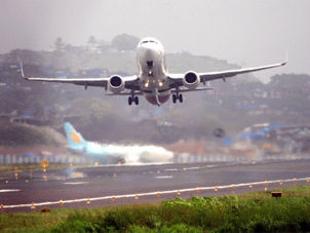 New Delhi, Jun 18: Jet Airways and European carriers Air France and Royal Dutch Airlines (KLM) have entered into a code share agreement to provide seamless connectivity to passengers for destinations in India and Europe.
New Delhi, Jun 18: Jet Airways and European carriers Air France and Royal Dutch Airlines (KLM) have entered into a code share agreement to provide seamless connectivity to passengers for destinations in India and Europe.
As per the agreement, Air France (AF) and KLM can place their own codes (AF) and (KL) on Jet Airways domestic flights for providing connectivity to three major Indian cities beyond South Indian city of Bengaluru, Delhi and Mumbai.
Code share is a commercial agreement between two or more airlines that share the same flight, with all the partnering airlines able to sell seats on that particular flight.
"Customers travelling from Europe to India on Air France flights will now be able to connect seamlessly with one ticket to Chennai via Bengaluru, Delhi and Mumbai, and to Kolkata, Hyderabad via Mumbai and Bengaluru.
"Likewise, KLM would place its marketing code (KL) on Jet's domestic flights to four major cities in India beyond Delhi, allowing passengers travelling from Europe to India to connect seamlessly to South Indian cities of Bengaluru, Chennai, Hyderabad and Western Coastal Indian city of Mumbai via Delhi," a joint statement issued by Jet and AF-KLM said.
The tickets are open for sale from Monday for passengers wanting to travel from June 19.
"We are delighted with this enhancement in our relationship with both Air France and KLM...The code share arrangements will allow our guests the convenience of enhanced connectivity from across Air France and KLM's networks via their European gateways in Paris and Amsterdam to key destinations throughout India," Chief Commercial Officer of Jet Airways, Sudheer Raghavan said.
Referring to the agreement, Dominique Patry, Air France's Vice-President, International Affairs and Alliances, said, "we are strengthening our presence in a key market following the code sharing agreement with Jet Airways."
Pieter Elbers, MD and Chief Operating Officer of KLM, said KLM is pleased with this important step in expanding the cooperation between Jet Airways and KLM.
"Being able to serve our customers an expanded network in India with four important domestic code share destinations is considered as key strategic value to our company," he said.
Air France-KLM have 27 weekly long-haul flights between Europe and India, while Jet Airways operates to 72 places in India and abroad including Abu Dhabi, Bahrain, Bangkok, Brussels, Dubai, Hong Kong, Jeddah, London, New York (Newark), Singapore and Toronto.





Comments
Add new comment